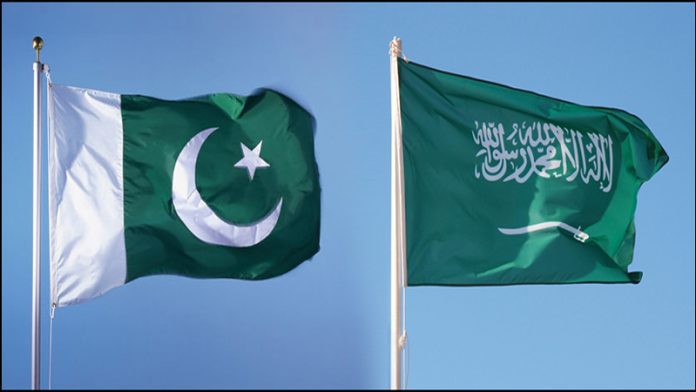Pakistan has requested Saudi Arabia to increase its lending by approximately $1.5 billion, adding to the existing $5 billion portfolio, to help meet the external financing requirements necessary for the International Monetary Fund’s (IMF) 37-month bailout package.
The IMF requires confirmation from Pakistan’s three key bilateral partners—Saudi Arabia, China, and the UAE—regarding their $12 billion loan rollovers before its executive board can approve the bailout package.
Currently, Saudi Arabia has a $5 billion exposure to Pakistan, followed by China with $4 billion and the UAE with $3 billion.
Dawn reported, citing informed sources, that Pakistan has asked Riyadh for an additional $1.5 billion, which may be provided as a bilateral commercial loan or a safe deposit. Saudi Finance Minister Mohammed Al-Jadaan has assured his Pakistani counterpart of the additional support, but the process is taking time to finalise.
Meanwhile, Finance Minister Muhammad Aurangzeb and his team have begun reaching out to commercial banks in the UAE for further financial support. They have also been in discussions with Western banks, although the offered interest rates are less favorable given the current political and economic conditions in Pakistan.
The finance minister has recently held talks with the chief executives of Mashreq Bank and Dubai Islamic Bank, as well as with the Saudi finance minister. These banks are reportedly willing to provide $300-350 million each in credit for the current fiscal year, to be supplemented by sukuk bonds in the next fiscal year.
The government has also established a finance minister-led committee that includes Power Minister Awais Leghari and Minister of State Ali Pervez Malik. This committee will lead negotiations with Chinese authorities and energy sector investors, with assistance from a Chinese financial advisory firm.
Last month, the government officially began the process of reprofiling over $27 billion in debt and liabilities with Saudi Arabia, China, and the UAE. The reprofiling of $12 billion is a key condition set by the IMF under the $7 billion Extended Fund Facility.
Islamabad has also asked Beijing to reprofile more than $15 billion in energy sector liabilities and to convert imported coal-based projects to local coal, aiming to ease the burden on the fiscal budget and reduce foreign exchange outflows.
Pakistan’s budget for the current fiscal year includes a target of $20 billion in foreign borrowing, with an additional $3 billion rollover from the UAE for balance of payments. The government expects to raise $4 billion through foreign commercial borrowing and another $1 billion through international bonds. The IMF board is now expected to approve the bailout package in September.




